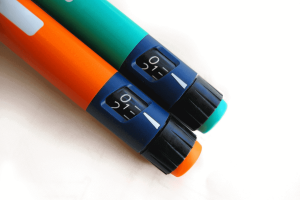Letting people know that you have diabetes can be difficult.
I’ve never felt the need to hide my diabetes from anyone. I don’t make a point of telling everyone I meet, but if there is a need to say something or it comes up, I talk about it openly. My hope is that if a person doesn’t know anything about the disease, maybe I’ll enlighten them a little. If they do have diabetes or are close to someone who does, maybe being open will help them feel more comfortable with it.
Some people don’t need to know at all that you have diabetes and some people absolutely need to know, but for some people there is also a middle ground. I hope that sharing my experiences will help you decide what’s comfortable for you.
Should I tell my family and close friends?
When I was first diagnosed, I told my family and close friends–mostly so that they would understand that I was going to need to make some lifestyle changes and would need support. Some people reacted like it was a horrible, scary thing. Others were very straight-forward about it–now you know, so do what you have to do. It’s manageable and treatable, even if it’s not curable.
What about my employer?
Telling an employer is a tougher decision. When I was diagnosed, my boss was also a friend of mine, so it was sort of natural for me to share it with her. When I changed jobs, I didn’t bring it up with my new boss until there was a reason to share. When I started my current job, I actually didn’t bring it up until my new boss took me to lunch one day and noticed when I pulled out my pump to bolus. Some employers are less understanding than others, but thankfully, there are laws that prevent them from treating you differently because of your disease. The protections for those of us with chronic illness are getting better and better, although they are not yet perfect.
With regard to withholding the information, it really depends on whether you think your diabetes could potentially cause an issue with your job. It’s important to research and know your rights in your specific situation.
How about romantic partners?
I was already married when I was diagnosed, so I didn’t have to worry about when to tell a potential romantic partner about my diagnosis. I think that can maybe be tricky. Some people will take it in stride and others will shy away from someone who requires additional “maintenance.” To me, the clear indicator of if someone is a good match for you is how they react. Wait a few dates in or tell them right away–however it happens naturally. The person’s response will tell you a lot about them, and in my opinion, a partner worth having won’t be scared off.
What do I do in social situations?
I have actually met people I didn’t know by noticing they have a pump and commenting on it, and I’ve had conversations with some very interesting people as a result. I noticed a girl in the gym locker room one day removing her pump before exercising and we started chatting. Another time at the gym, a young man was re-attaching his pump before walking out after his workout and we talked. It’s interesting to share the experience of using a pump and making it work with an exercise regimen. Every time I talk to someone new, I learn something and gain a little confidence with each conversation.
Bottom Line
Do what’s comfortable for you. Keep in mind, though, it’s probably a good idea for a few key people around you to be aware of your diabetes. If you need help at some point, it will be much easier if someone knows a little about your situation so they will be better able to assist you. And if you can help someone–either with the disease to feel better about it or without the disease to help remove some of the stigma–isn’t that worth it?
Not everyone is a champion — some people are more private than others and that’s okay. But give it some thought, follow your gut and your heart, and you’ll be fine.
Remember: Be smart. Be healthy. Live YOUR life!
photo credit:
duisburgbunny via
photopin cc




